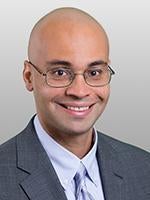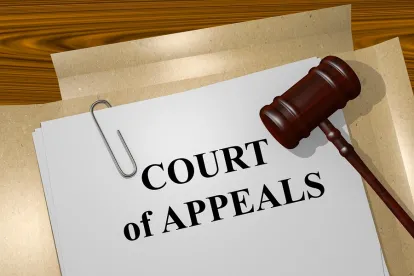On May 24, 2017, the U.S. Court of Appeals for the D.C. Circuit held en banc oral argument in the rehearing of PHH Corp., et al. v. Consumer Financial Protection Bureau (“PHH”). The lively oral argument extended well beyond the time originally allotted by the Court, as lawyers for PHH, the Department of Justice, and the Consumer Financial Protection Bureau took turns trying to help the Court evaluate whether the structure of the CFPB or the Bureau—particularly the role of a single director who may be fired only for cause—violates the Constitution.
The Background
On October 11, 2016, a panel of the D.C. Circuit held that the structure of the CFPB, headed by a single director removable only for cause, is unconstitutional. The decision also overturned the Bureau’s interpretation of the anti-kickback provision of the Real Estate Settlement Procedures Act (“RESPA”), held that the Bureau’s attempt to retroactively apply its interpretation of RESPA to PHH in an enforcement proceeding violated due process, and determined that RESPA’s three-year statute of limitations applied to administrative proceedings.
The CFPB petitioned the Court for a rehearing en banc, and on February 16, 2017, the D.C. Circuit granted the request. The en banc panel consisted of eleven judges: the active Circuit Judges, minus Chief Judge Merrick B. Garland who has recused himself from the proceedings, plus Senior Judge Randolph, who was on the original panel. Of the eleven judge panel, six of the judges were appointed by a Democratic president. Each of the members of the original panel participated in the rehearing—Judge Kavanaugh had written the lead opinion, Senior Judge Randolph wrote a short concurring opinion, and Judge Henderson wrote an opinion concurring in the judgment, but dissenting from the constitutional holding on the grounds that it was unnecessary to reach the question.
The Argument
Counsel for PHH, former Solicitor General Ted Olson, opened and closed his argument by insisting that the Founding Fathers resolved the relevant constitutional issue by creating a single President who is responsible to see that the laws are faithfully executed. This principle was violated, he argued, when Congress created a Bureau with sweeping powers and a single director who could not be removed by the President except for cause. He was peppered with questions from the panel about whether that argument survived the Supreme Court cases that upheld the “for cause” limitation on the President’s ability to fire FTC Commissioners, Humphrey’s Executor, 295 U.S. 602 (1935), and a the appointment of single independent counsel, Morrison v. Olson, 487 U.S. 654 (1988). Related issues arose when several judges asked about how PHH’s constitutional attack on independent agencies, if accepted, would affect other banking agencies, particularly the Federal Reserve.
The Department of Justice had asked for ten minutes of argument, but active questioning significantly extended that time. The Department, which had supported the CFPB in the waning days of the Obama administration, now argued that the “for cause” limitation on the President’s authority to fire the CFPB Director violates the President’s Article II authority over Executive Branch appointments. The Department sought to distinguish Humphrey’s Executor as limited to multimember agencies, and the Morrison case as dealing with an inferior officer with limited jurisdiction and tenure. Like counsel to PHH, the Department argued that these precedents were exceptions to constitutional principles and should not be extended to the CFPB Director.
Counsel for the CFPB began by arguing that the President’s ability to fire the Director, albeit only for cause, made the Director sufficiently accountable for constitutional purposes. A handful of judges questioned that assumption, and expressed concern that such a principle could be extended to protect Cabinet secretaries from serving at the will of the President. The Court also asked if other aspects of the Bureau’s structure, such as the scope of its powers and its freedom from the appropriations process, should be considered as part of the constitutional calculus. The Bureau’s counsel replied that each of those factors added “zero” to the analysis. In rebuttal, PHH’s counsel argued that these factors were not zeros, and were in fact significant enough to make the CFPB unconstitutional even if it was a multimember Commission.
The oral argument focused almost exclusively on the constitutionality of the Bureau. The RESPA and statute of limitation issues that occupied much of the panel opinion were each the subject of late and limited questioning, and the oral argument did not reach several issues on which the Court had requested briefing, including whether the Court could rely upon the panel’s ruling on the RESPA issues to avoid the constitutional issue.
The difficulty in reading a court through its questions at oral argument is compounded by an en banc hearing. However, a few themes emerged. We know from the panel opinion that at least some judges believe that the Bureau’s structure is unconstitutional. At the other pole, other judges gave the impression during the oral argument that they view the Bureau as simply another variation on the type of independent agency that has become familiar in the years since the New Deal. Between those two groups, several judges appeared concerned that the Court of Appeals was not the proper place to resolve arguments that may require overruling or sharply limiting Humphrey’s Executor and Morrison. At one point, Judge Griffith suggested that these issues were for the Supreme Court to resolve—suggesting that the long saga of the PHH case may have other chapters ahead.





 />i
/>i

